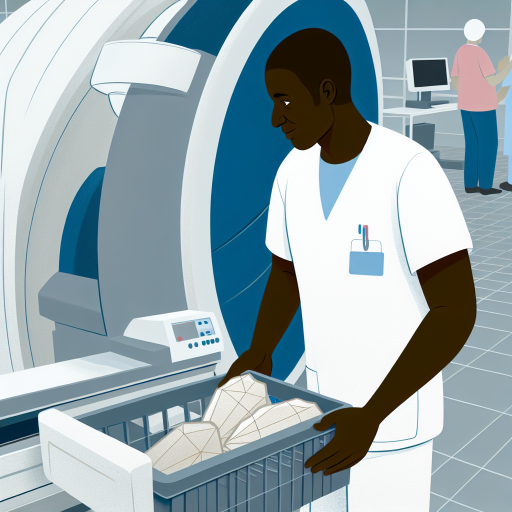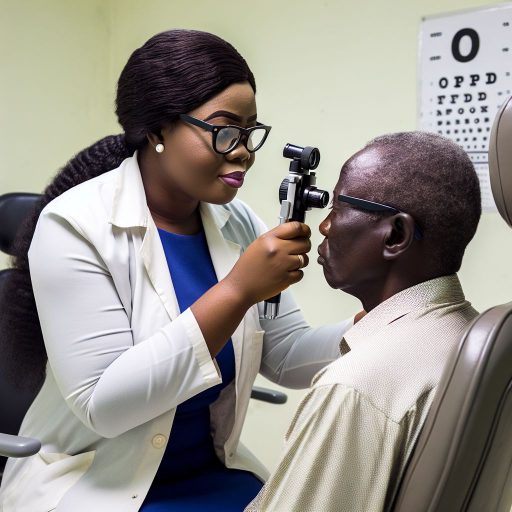Introduction:
A post-procedure diet is crucial for restorative dental patients to promote healing and prevent complications.
What you eat can impact your body’s ability to recover and heal after dental procedures.
Soft foods:
Emphasize the importance of consuming soft foods to avoid irritating the surgical site.
Provide examples of soft foods that are easy to eat and do not require much chewing.
Benefits of Soft Foods:
Soft foods are gentle on the teeth and gums, reducing the risk of discomfort after dental procedures.
They are easier to chew, helping patients avoid putting unnecessary pressure on the surgical site.
Examples of Soft Foods:
Yogurt: A smooth and creamy option that is rich in probiotics for oral health.
Mashed potatoes: Easy to swallow and comforting for patients with sensitive mouths.
Smoothies: Blend fruits and vegetables into a nutritious and easy-to-consume drink.
Applesauce: A sweet and soft treat that requires minimal effort to eat.
Oatmeal: A warm and filling option that is gentle on the mouth.
Importance of Texture:
Choosing foods with a soft texture is essential for promoting healing and preventing complications.
Hard or crunchy foods can cause irritation and discomfort in the surgical area, slowing down the recovery process.
Alternate Protein Sources:
For patients who need to maintain their protein intake, soft options are available to meet their nutritional needs:
Cottage cheese: A soft and protein-rich option that can be easily consumed after dental procedures.
Eggs: Boiled or scrambled eggs are gentle on the mouth and provide essential protein for recovery.
Hydration is Key:
Encourage patients to stay hydrated by consuming plenty of water and other fluids after dental procedures.
Soft foods with high water content, such as fruits and soups, can also help maintain hydration levels.
Precautions to Take:
Remind patients to avoid hot or spicy foods, as well as foods with small seeds or nuts that can get lodged in the surgical site.
Proper oral hygiene, including gentle brushing and rinsing with saltwater, is also crucial for a smooth recovery.
Consult Your Dentist:
Every patient’s needs are unique, so it’s important to consult with your dentist for personalized dietary recommendations.
Your dentist can provide tailored advice based on the specific procedure you underwent and your individual oral health concerns.
By following these guidelines and incorporating soft foods into your post-procedure diet, you can support the healing process and promote a quick recovery for your restorative dental treatment.
Remember to prioritize your oral health and well-being by choosing foods that are gentle on your teeth and gums during this crucial period.
Avoiding Certain Foods:
After undergoing a restorative dental procedure, it’s important to be mindful of the foods you consume to promote proper healing and avoid complications.
Here are some foods that should be avoided post-procedure:
Hard Foods:
- Hard candies
- Nuts
- Ice cubes
Avoiding hard foods is crucial to prevent any potential damage to the surgical site.
Chewing on hard foods can put pressure on the area, leading to discomfort or even dislodging of the restoration.
Crunchy Foods:
- Popcorn
- Corn chips
- Raw vegetables
Crunchy foods can be abrasive and may irritate the site of the dental procedure.
They can also get stuck in between teeth or restorations, causing infection or further damage.
Sticky Foods:
- Caramel
- Chewy candy
- Toffee
Sticky foods can cling to the dental work, creating a breeding ground for bacteria.
They can also pull on restorations or crowns, causing them to loosen or come off prematurely.
By avoiding these types of foods, you can help ensure a successful recovery after your restorative dental procedure.
Instead, opt for softer foods that are gentle on your teeth and gums to promote healing and minimize any discomfort.
Find Out More: Prominent Paediatricians in Nigeria
After undergoing a restorative dental procedure, it is crucial to follow a post-procedure diet that promotes healing and minimizes discomfort.
In this section, we will focus on the importance of staying hydrated to aid in the recovery process.
Hydration:
- Staying hydrated is essential after any dental procedure as it helps in the healing process.
- Make sure to drink plenty of water throughout the day to keep your mouth moist and aid in the healing of any wounds.
- Water is the best choice for hydration as it is free of sugars, acids, and other additives that can irritate the surgical site.
- While it may be tempting to consume sugary or acidic beverages, such as sodas or fruit juices, it is best to avoid them during the recovery period.
- These beverages can increase the risk of infection, delay healing, and cause discomfort in the mouth.
- Opt for water, herbal teas, or sugar-free beverages to stay hydrated without compromising your oral health.
- Drinking water also helps flush out any bacteria or debris from the surgical site, reducing the risk of infection.
- For patients who experience dry mouth due to medications or the procedure itself, staying hydrated is crucial to prevent further discomfort.
- Remember to drink water consistently throughout the day, even if you do not feel thirsty, to maintain optimal hydration levels.
- Dehydration can slow down the healing process, increase the risk of complications, and prolong discomfort after a dental procedure.
By prioritizing hydration and choosing the right beverages, you can support your body’s natural healing process and ensure a smooth recovery after a restorative dental treatment.
Discover More: Anatomical Pathology Equipment Used in Nigeria
Nutrient-rich foods:
Consuming nutrient-rich foods is vital for supporting the healing process and aiding in recovery after dental procedures.
Transform Your Career with Expert Guidance
Get personalized mentorship consulting that’s tailored to your unique path. Our expert advice is actionable and exclusive.
Get StartedThese foods provide essential vitamins and minerals that promote overall health and well-being.
Here are some examples of nutrient-rich foods that you should include in your post-procedure diet:
- Fruits: Fruits are rich in vitamins, antioxidants, and fiber, which can help boost your immune system and aid in healing. Choose soft fruits like bananas, applesauce, or blended berries for easy consumption.
- Vegetables: Vegetables are packed with essential nutrients like vitamin C, vitamin A, and folate, which are important for tissue repair and immune function. Opt for cooked or blended veggies to make chewing easier.
- Lean proteins: Protein is essential for tissue repair and recovery. Opt for lean proteins like chicken, fish, tofu, or legumes to support your body’s healing process. Soft, cooked meats or protein shakes are good options.
- Dairy products: Dairy products like milk, yogurt, and cheese are rich in calcium and protein, which are essential for bone health and tissue repair. Choose low-fat or soft varieties for easier consumption.
- Whole grains: Whole grains provide fiber, vitamins, and minerals that can support overall health and digestion. Choose soft grains like oatmeal, quinoa, or whole grain pasta for easy chewing.
By including a variety of nutrient-rich foods in your post-procedure diet, you can support your body’s healing process and promote faster recovery after dental procedures.
Remember to consult with your dentist or healthcare provider for personalized dietary recommendations based on your specific needs and condition.
You Might Also Like: Popular Veterinary Clinics in Major Nigerian Cities

Timing of meals:
When it comes to the post-procedure diet for restorative dental patients, timing of meals plays a crucial role in the healing process.
It is important to space out meals and avoid large meals immediately after a dental procedure to prevent any complications and discomfort.
Here are some recommendations on the timing of meals:
- Avoid large meals: It is advised to avoid consuming large meals immediately after a dental procedure. Large meals can put additional stress on the mouth and jaw, leading to discomfort and possibly disrupting the healing process.
- Space out meals: Instead of having three large meals a day, consider breaking them down into smaller, more frequent meals. This can help prevent any strain on the jaw and allow for smoother healing.
- Snack throughout the day: Snacking on soft, easy-to-eat foods can help provide energy and nutrients without overloading the mouth. Opt for foods like yogurt, smoothies, or mashed potatoes for quick and convenient snacks.
- Hydrate regularly: Along with meals, it is important to stay hydrated throughout the day. Drinking water can help keep the mouth clean and aid in the healing process. Avoid sugary or acidic beverages that can irritate sensitive areas in the mouth.
- Avoid late-night meals: Try to avoid eating heavy meals right before bedtime. Late-night meals can increase the risk of acid reflux, which can be uncomfortable for dental patients, especially after a procedure.
By following these guidelines and being mindful of the timing of your meals, you can help promote a faster and smoother recovery after a restorative dental procedure.
Remember to consult your dentist for personalized recommendations based on your specific needs and treatment plan.
Delve into the Subject: Top Nigerian Universities for Medical Microbiology
Pain management:
After a restorative dental procedure, managing pain and inflammation is crucial for a smooth recovery process.
Diet plays a significant role in reducing discomfort and promoting healing.
Here are some food suggestions to help ease pain and inflammation:
- Include foods high in omega-3 fatty acids: Omega-3 fatty acids have anti-inflammatory properties that can help reduce swelling and pain. Incorporate foods like salmon, chia seeds, and walnuts into your diet.
- Load up on antioxidants: Antioxidants can also aid in reducing inflammation and promoting healing. Blueberries, dark chocolate, and green tea are rich in antioxidants and can be beneficial for post-procedure recovery.
- Avoid spicy and acidic foods: Spicy and acidic foods can irritate the gums and sensitive areas in the mouth, leading to increased pain and discomfort. Opt for bland and soft foods instead.
- Stay hydrated: Drinking plenty of water is essential for maintaining oral health and promoting healing. Water helps flush out toxins and bacteria, reducing the risk of infection and speeding up the recovery process.
- Consider herbal teas: Herbal teas like chamomile and ginger tea have anti-inflammatory properties and can help soothe sore gums and alleviate pain. Sip on warm herbal teas throughout the day for relief.
- Include vitamin C-rich foods: Vitamin C is essential for collagen production, which is crucial for wound healing and tissue repair. Citrus fruits, bell peppers, and broccoli are great sources of vitamin C.
By incorporating these pain-relieving and anti-inflammatory foods into your post-procedure diet, you can help manage discomfort and promote a faster recovery.
Consult with your dentist or healthcare provider for personalized dietary recommendations based on your specific needs and restrictions.
Following a post-procedure diet for restorative dental patients is crucial for optimal healing and recovery.
Choose soft foods that are easy to eat and won’t irritate the surgical sites.
Avoid hard, crunchy, or sticky foods that could damage the site or dislodge any stitches.
Incorporate nutrient-rich foods like fruits, vegetables, and lean proteins to support healing.
Stay hydrated by drinking plenty of water throughout the day.
Limit foods and beverages that are too hot or too cold as they can cause discomfort.
Follow any specific dietary instructions provided by your dentist or oral surgeon.
Listen to your body and make adjustments to your diet as needed based on your comfort level.
By adhering to these guidelines, you can help promote faster healing, reduce the risk of complications, and improve your overall recovery experience.
It’s essential to prioritize your oral health during this critical time.
Don’t hesitate to reach out to your dental care provider if you have any questions or concerns.
Your commitment to following a proper post-procedure diet will pay off in the long run.
Stay dedicated to your oral health, and you’ll reap the benefits of a healthy and restored smile.
Additional Resources
An Audit of Indication, Distribution, and Failure of Direct Composite …




